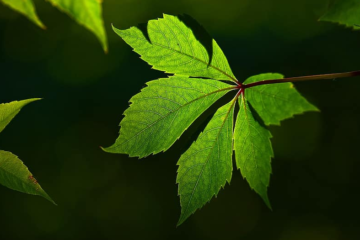The 100-day comprehensive crackdown on cannabis cultivation and smuggling in Andhra Pradesh’s Alluri Sitarama Raju (ASR) district has yielded significant results. Launched on June 12, 2024, by District Collector A.S. Dinesh Kumar and SP Amit Bardar, the campaign aims to eradicate cannabis from the tribal regions. Over the course of the drive, authorities have seized 4,386.85 kg of ganja, registered 62 cases, and taken legal action against 234 individuals. The initiative also focuses on educating tribal communities and encouraging alternative horticulture practices.
Seizures and Legal Actions
The anti-cannabis campaign in ASR district has led to substantial seizures and legal actions. From June 12 to August 22, authorities confiscated 4,386.85 kg of ganja and registered 62 cases. Legal action was taken against 234 individuals across several mandals, including Paderu and Hukumpet. This aggressive approach aims to dismantle the networks involved in the cultivation and smuggling of cannabis.
The campaign’s success is attributed to the coordinated efforts of various departments. Police, revenue, and forest officials have worked together to identify and destroy cannabis plantations. The use of technology, such as drones, has enhanced the efficiency of these operations. By monitoring remote areas, authorities can quickly respond to illegal activities and prevent the spread of cannabis cultivation.

The legal actions taken during the campaign serve as a deterrent to those involved in the cannabis trade. By holding individuals accountable, the authorities send a strong message that illegal activities will not be tolerated. This approach not only disrupts the supply chain but also discourages others from engaging in similar activities.
Community Education and Alternative Crops
Educating the tribal communities about the dangers of cannabis cultivation is a key component of the campaign. Authorities have organized awareness programs, rallies, and seminars to inform residents about the legal and health risks associated with ganja. These initiatives aim to change the mindset of the community and encourage them to pursue legal and sustainable livelihoods.
One of the significant steps taken is the promotion of alternative horticulture practices. Farmers who have stopped cultivating cannabis are being provided with various plants, including silver oak, custard apple, and mango. Last year, 3,86,772 saplings were distributed to tribal farmers, who planted them across 4,198 acres. This year, authorities have continued to support farmers by distributing additional crops and providing training on sustainable farming techniques.
The shift to horticulture not only provides a legal source of income but also contributes to the overall development of the region. By diversifying their crops, farmers can improve their economic stability and reduce their dependence on illegal activities. This approach also helps in preserving the environment and promoting biodiversity in the region.
Long-Term Impact and Future Plans
The 100-day drive against cannabis in ASR district is part of a broader strategy to combat drug-related issues in the region. Since 2019, authorities have registered 1,230 cases and seized 1,94,806 kg of ganja. The consistent efforts over the years have led to a significant reduction in cannabis cultivation and smuggling. The success of the current campaign builds on these previous efforts and sets the stage for future initiatives.
Looking ahead, authorities plan to continue their focus on eradicating cannabis from the region. The use of technology, community engagement, and legal actions will remain central to these efforts. By maintaining a strong presence and actively monitoring the situation, authorities aim to prevent the resurgence of cannabis cultivation.
The long-term impact of the campaign is expected to be positive, with reduced drug-related activities and improved socio-economic conditions in the region. The success of the drive serves as a model for other regions facing similar challenges. By adopting a comprehensive and coordinated approach, authorities can effectively address the issue of illegal drug cultivation and promote sustainable development.



